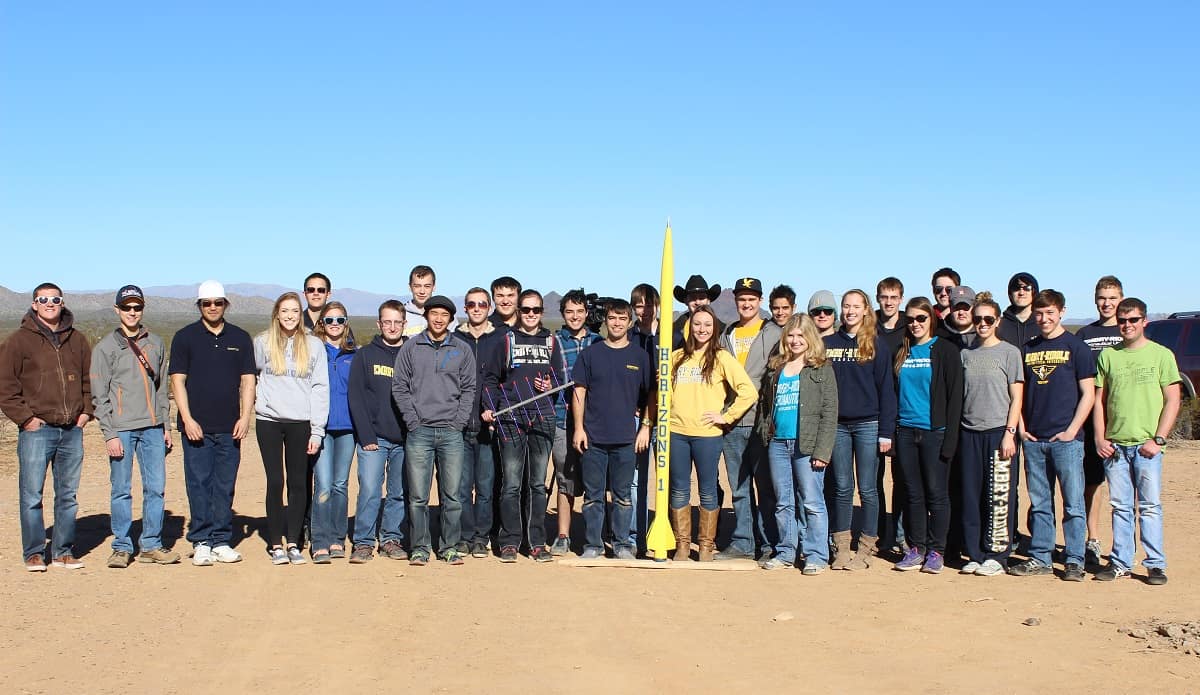Crowdfunding Connects Students with Donors

In less than a year, the new Embry-Riddle Crowdfunding platform crowdfunding.erau.edu, which debuted last fall, helped students and faculty raise tens of thousands of dollars in support.
“The crowdfunding initiative allows students to participate in their own success, and witness directly the benefits of philanthropy,” says Chris Lambert, senior executive director of development at Embry-Riddle.
To date, projects that have benefited from crowdfunding include a student team attempting to launch a rocket into space, another team set on breaking the electric land speed record, a veteran’s group that was able to purchase a vehicle to shuttle vets around campus, and several scholarship funds.
“In the past, students have wanted to raise money for their projects but have never had the outlet to do so. Now, crowdfunding enables them to go out into the community, share their amazing work and raise money to reach their goals,” says Yoon Van Hout, director of annual giving at Embry-Riddle.
The Eagle Space Flight Team at the Prescott Campus was the first big success, surpassing its $4,500 goal to raise a total of $4,905 by December 2015. Bryce Chanes, a senior aerospace engineering student and the team’s founder, finds it rewarding to have small donors involved. “It’s not a corporation or the university just handing us money. It’s been a struggle but a blessing to answer to people who are actually interested in our success.”
Chanes says the campaign was effective—and he hopes to raise twice as much on the next attempt. “Flying a rocket to space is not cheap, but it’s cheaper than people think it is,” Chanes says. “You can’t expect two or three students to raise it all from their rich uncles. ‘Oh man it’s gonna go viral’ is also not a valid expectation. It takes work from the entire team.”
The Eagle Space Flight Team plans to be the first student group to design, build and launch a rocket past the internationally recognized boundary of space—100 kilometers in altitude—and recover it intact when it lands. The Prescott Campus has already benefitted from the team’s efforts: the equipment they buy is also available to other students using the labs.
Chanes stresses to donors that they’re not just kids playing around: This is serious science. The students learn how to use various testing equipment, how to mix propellant, and other career-advancing skills. “The money we raise supports a program that gives us the hands-on opportunities that we need to work in the real world. We have team members interning at top aerospace companies.”
That’s what crowdfunding is all about, Van Hout says. “Empowering students to be successful in their studies and beyond.”

 Alan Marcos Pinto Cesar
Alan Marcos Pinto Cesar